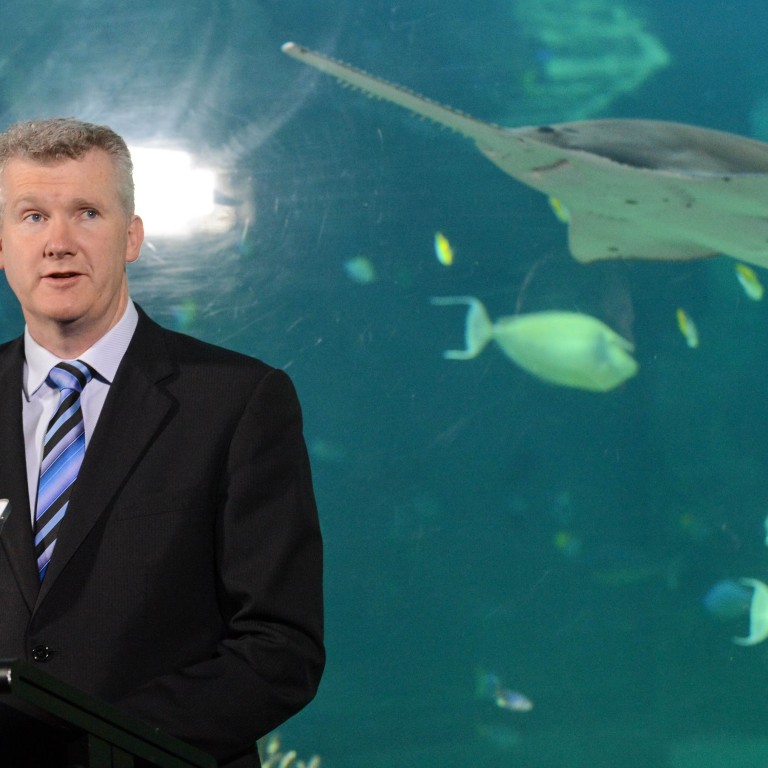
Australia creates world’s largest marine reserves
Australia on Friday created the world’s largest network of marine reserves, protecting a huge swathe of ocean despite claims it will devastate the fishing industry.
The announcement, after years of planning and consultation, will significantly expand the protection of creatures such as the blue whale, green turtle, critically endangered populations of grey nurse sharks, and dugongs.
The scale of the plan, which will cover more than 2.3 million square kilometres in six marine regions, was first made public in June.
Environment Minister Tony Burke said of 80,000 submissions received, the vast majority supported the proposal.
“There are very few countries in the world that are as responsible for as much of the ocean as Australia is. And our oceans are under serious threat,” he said.
“There are a range of actions that need to be taken to turn the corner on the health of our oceans. Establishing national parks in the ocean is a big part of that total picture.”
Burke said his decision was important for future generations.
“We need to appreciate that in the years to come we don’t want people to only know the magnificence of their oceans through aquariums or by watching Finding Nemo,” he said, referring to the animated Disney film.
But fishermen are furious, saying that coastal communities will be ruined, thousands of jobs lost and the A$2 billion (HK$16 billion) aquaculture industry seriously affected.
The Australian Marine Alliance, which conducted a cost analysis, claimed that 60 regional communities would be affected, 36,000 jobs lost and up to 80 trawler operators displaced, while the cost of seafood imports would soar.
Burke said he understood his decision would have an impact, but claimed it would only affect 1 per cent of the commercial fishing industry nationally.
To compensate, he said businesses hurt by the changes would be able to make use of A$100 million in assistance.
“Even though the new marine reserves have been designed in a way to minimise impacts on industry and recreational users, the government recognises that there will be impacts on some fishers and we will support those impacted,” he said.
The Commonwealth Fisheries Association criticised the amount of compensation on offer and Queensland Fisheries Minister John McVeigh said the plan, which will lock up huge areas off the state’s central and north coast, was madness.
“The impact right across our fishing communities will be enormous,” he said, warning of job losses.
“There will be a marked shift to imported seafood – that will rape fragile reef and other marine environments overseas where there is no proper management.”
While some limits will be placed on where energy companies can work, tracts of coast off Western Australia, where Shell and Woodside Petroleum recently won permits, will remain open to oil and gas exploration.
The Australian Conservation Foundation welcomed the initiative, saying it would “go down in Australian history as an economically and environmentally sustainable decision”.
But the foundation’s Paul Sinclair said more could still be done.
“Although the national marine reserve network is an achievement for Australians to celebrate, there is more work to be done to protect our coastal way of life,” he said.
“While the reserve network bans oil and gas exploration in the Coral Sea and off Margaret River in Western Australia, protecting nearby beaches from oil spills, the northwest region, including the Kimberley coast, is still vulnerable.”
